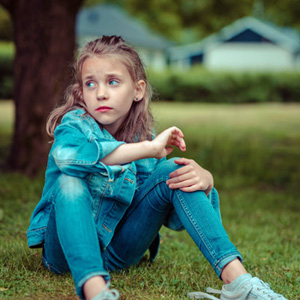Children and Divorce
Helping Kids Cope with Separation and Divorce
© Caroline Witten-Hannah for Auckland Therapy Blog, 11 March 2019.
 Children
in the Middle
Children
in the Middle
How parents can support their children to adapt when they separate. Considerations for Separating Parents.
There are two main predictors of children’s positive adjustment to their parents separation. The first is how well the parents adjust and develop a positive life for themselves. The second is how well the parents establish a good relationship with each other regarding their children following their separation.
- Children’s security and wellbeing are affected when there is conflict between parents. Their distress is made worse when they get caught in the middle of their parents hurt and anger. Avoid fighting in front of the children and seek help to work through your separation issues so the children are not exposed to your conflicts.
- It is the duty of each parent to facilitate children’s positive relationship with the other parent. Children understand they are a product of their two parents, whom they love. Any slight against either parent is hurtful to the children. Make a point of not making negative comments or doing hurtful things to the other parent.
- It is important that your children’s feelings about both their parents are free from contamination. Even if one parent has behaved badly in the relationship, that does not mean that this is the children’s experience. The children may have experienced that particular parent to be a loving and good parent.
- Sometimes when one parent feels wounded and deeply hurt by the other, they may want to punish their ex partner. Sometimes children are used as a way of hurting/punishing the other partner. This can cause enormous distress and confusion for children. They feel caught in a loyalty conflict and will feel confused. Children caught in such a bind may end up unable to trust either parent. The loss of contact with either parent is one of the worst outcomes of parental separation. (Unless there is a very good reason for severing contact e.g. safety concerns.)
Ways to help Children Adjust
- Reassure your children often that each parent loves them and when you can have these conversations with both parents together. Make a point of celebrating children’s milestones and achievements together.
- Tell your children over and over that the separation is not their fault and they have done nothing wrong. Give age appropriate information about why you are splitting up. A good general explanation is that “Mum and Dad have grown apart and are no longer happy together.” Say that you are sorry that Mum and Dad can’t live together any more and show them that you understand how hard this must be for them.
- Explain that adult love is very different from the love parents have for their children. Tell them the love parents have for their children lasts forever and does not go away - No Matter What. You could call this Everlasting Love.
- Frequently ask your children how they are feeling and encourage them to talk. Don’t minimise or take away their feelings of loss. Reassure them that they will all adjust and start to feel better in time.
- Be positive about the future and talk about the benefits of having two homes and time with each parent separately. Discuss plans, schedules and ways to make things work with your children.
- Respect your children's relationship with the other parent. Do not ask lots of questions or pry into your children’s time with the other parent. Let them decide what to share. Do not pass information between parents through your children.
- Try to keep routines the same at each house. Things like bedtime, before and after school schedules, discipline, chores etc. The more structure, routines and certainty that children have, the safer and more secure they will feel.
- Reduce the stress between the two houses. Call each house “our house” rather than Mum’s or Dad’s house. This helps them belong to each parents house and make it their home. Belonging and feeling wanted is so important for children. Let children take their clothes and belongings between houses. Help them pack for transitions between houses so they don’t forget to take what they need. Moving between houses can be very hard for children, especially at the beginning. Sometimes making a list on the wall can help.
- Make a really big effort to make transitions/dropoffs a stress-free experience for children. Prepare yourself for these, and put aside your anger and hurt so your children see both parents behaving in a respectful and friendly way with each other. Being able to do this makes an enormous difference to children’s sense of security and wellbeing. You will feel good if you can do this too and it will become easier in time.
Remember that how you handle your separation will become a map for your children throughout the rest of their lives. You are teaching and modelling to them how to get through difficulties and solve problems and be a respectful, sensitive and understanding person.
